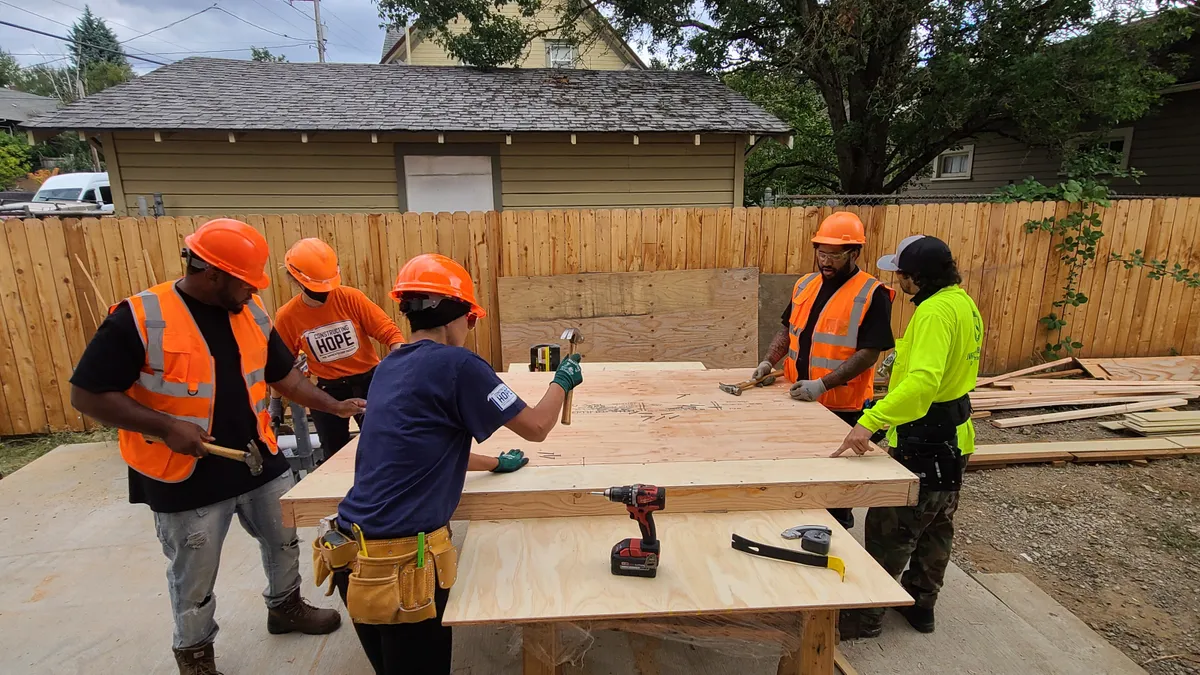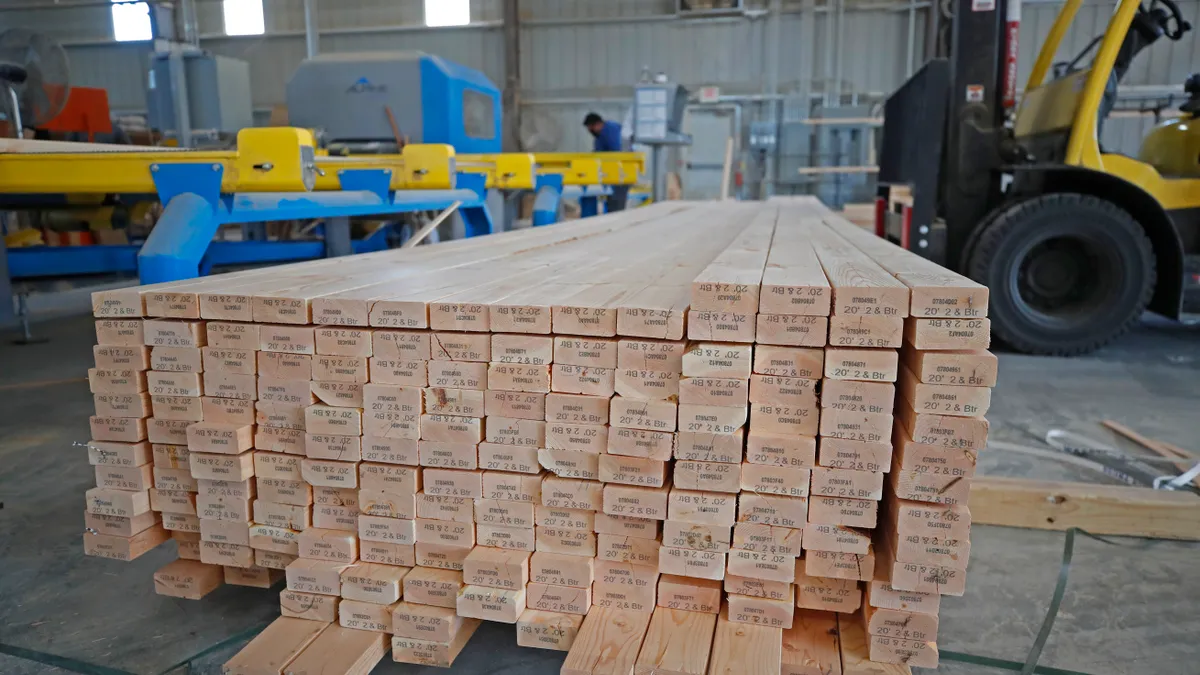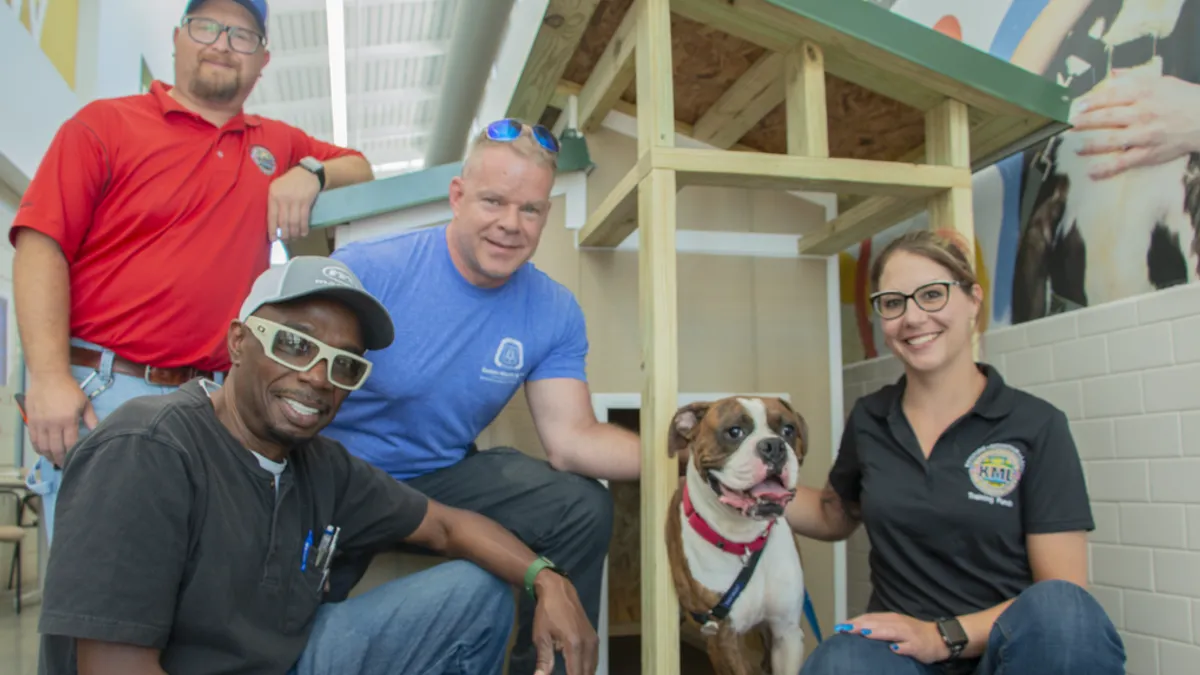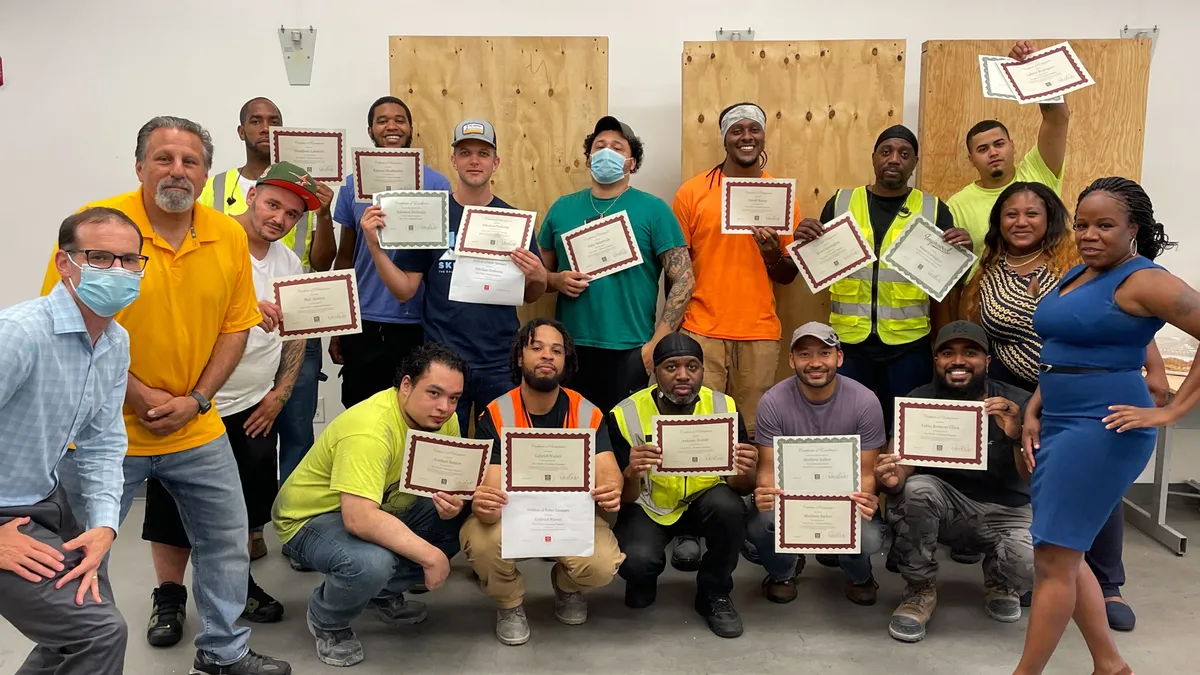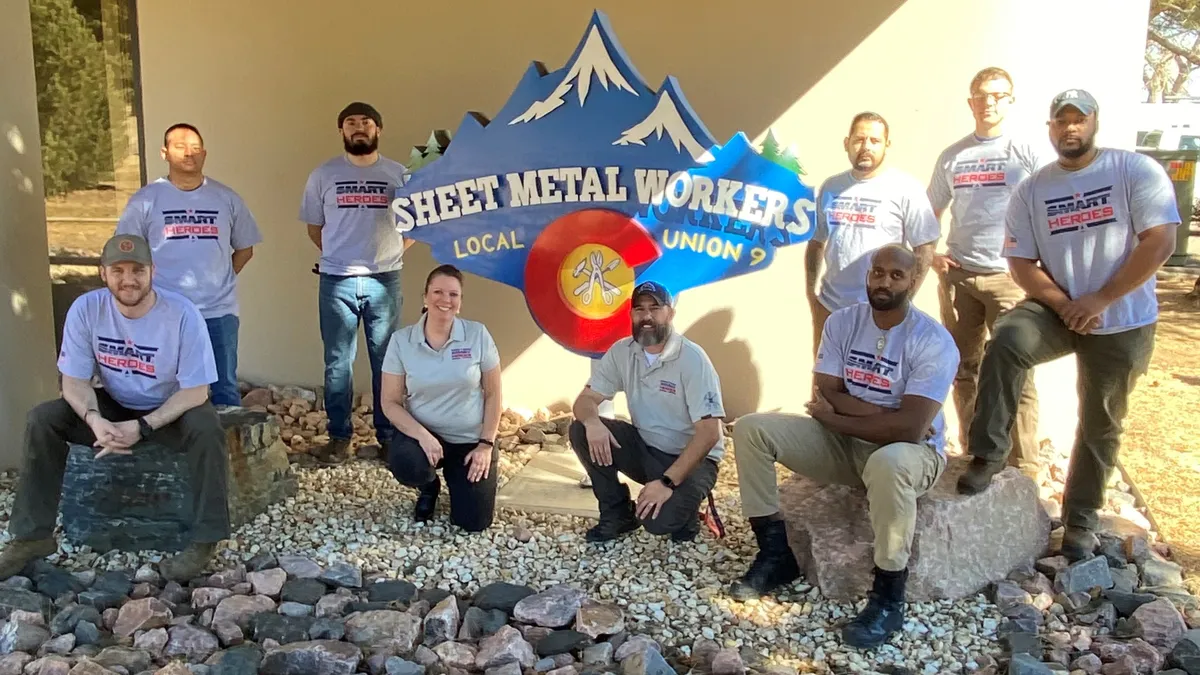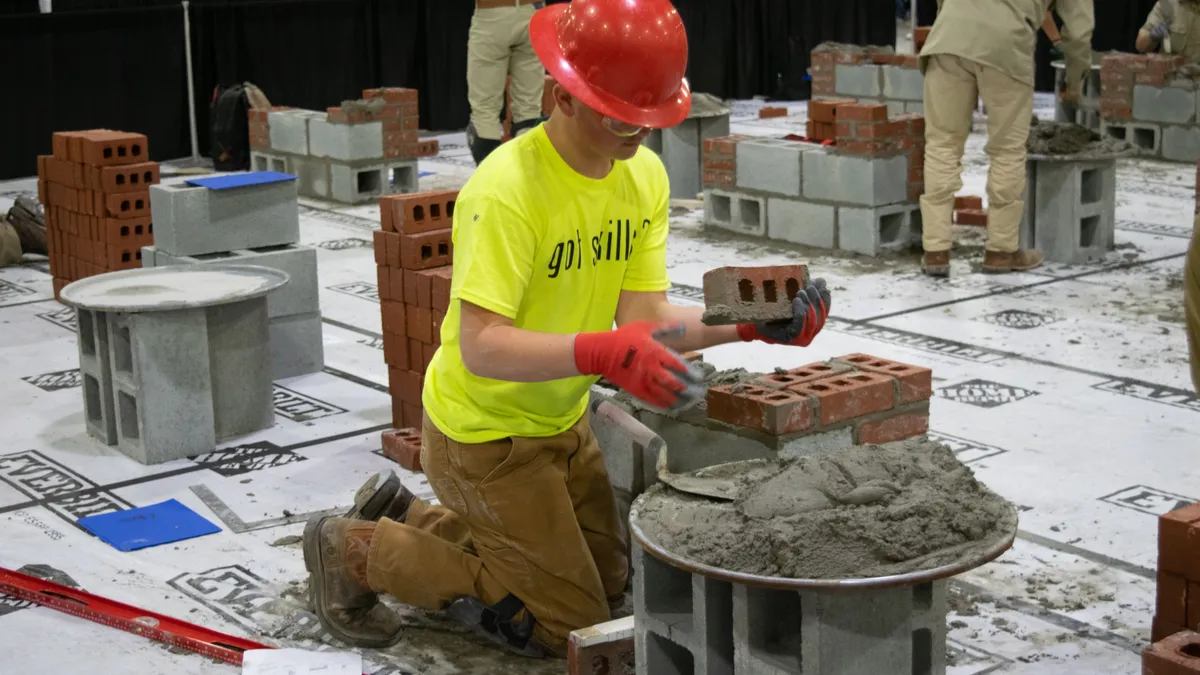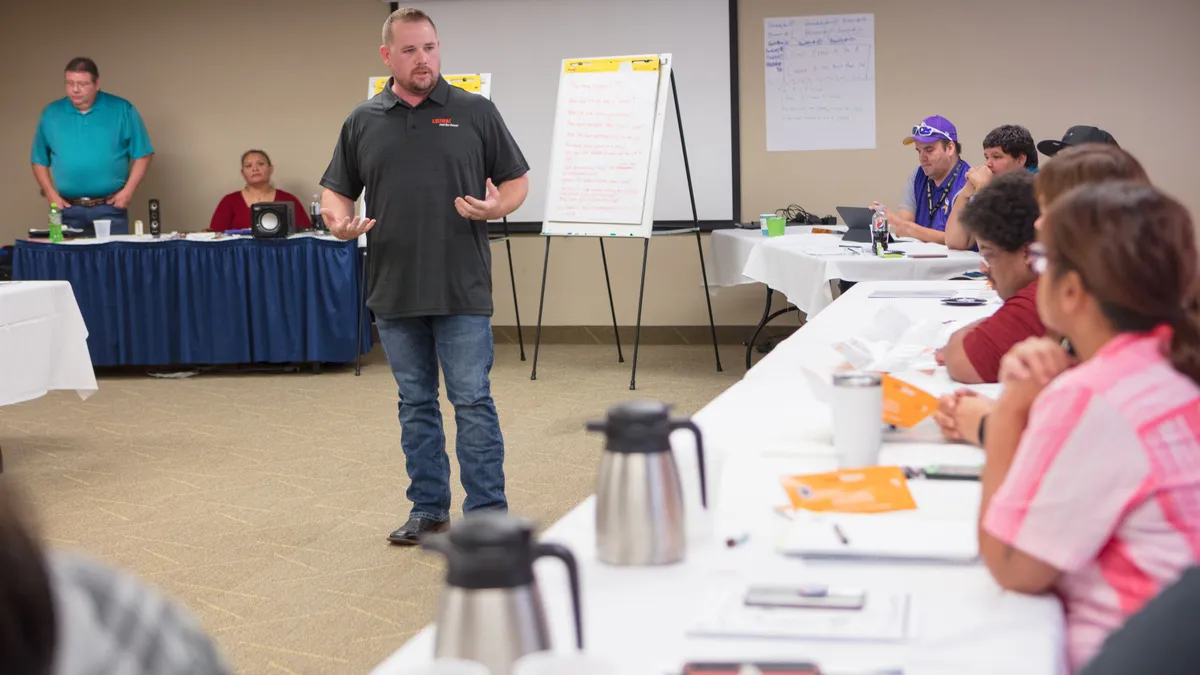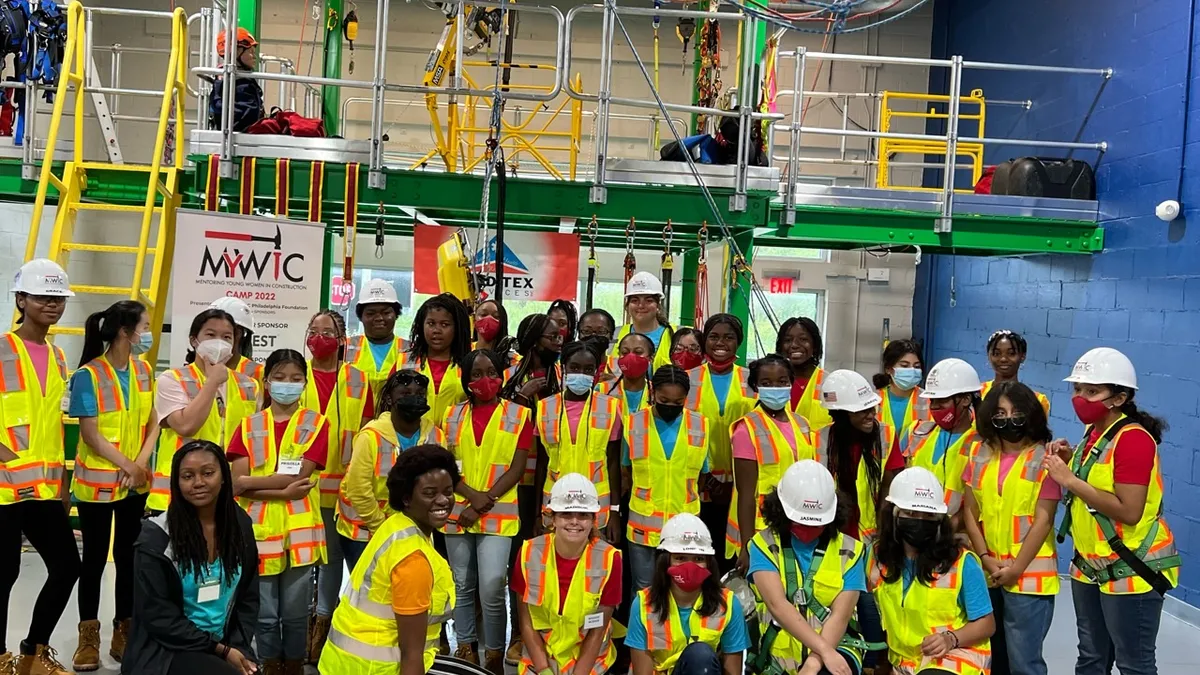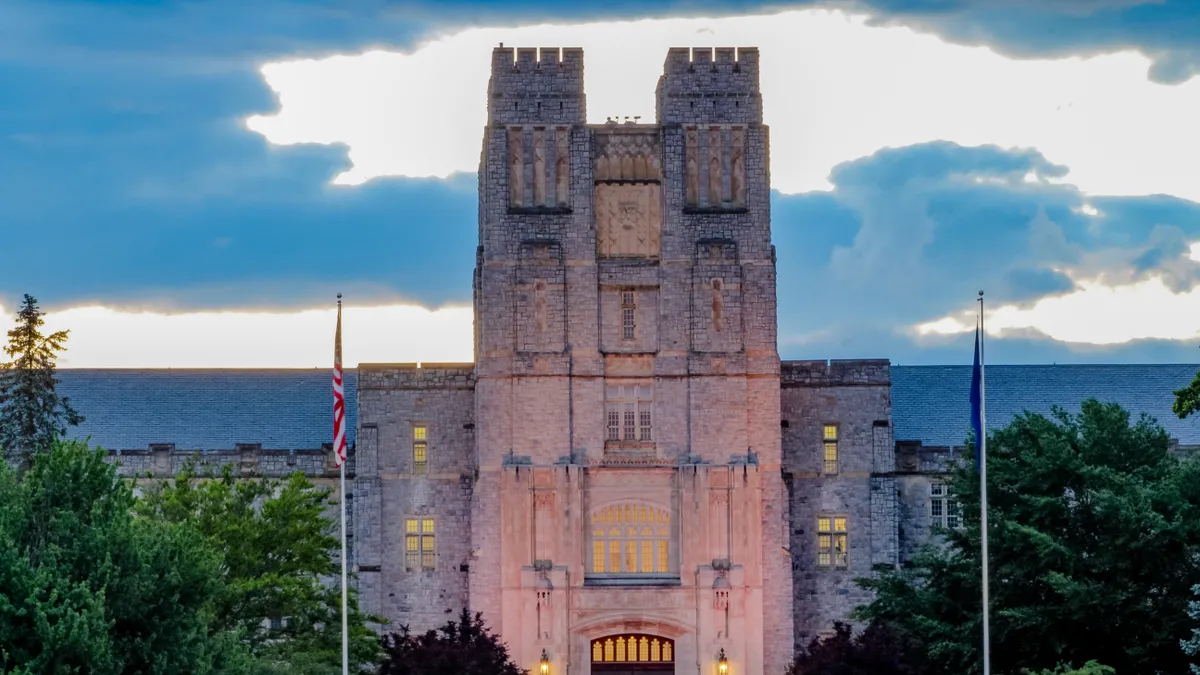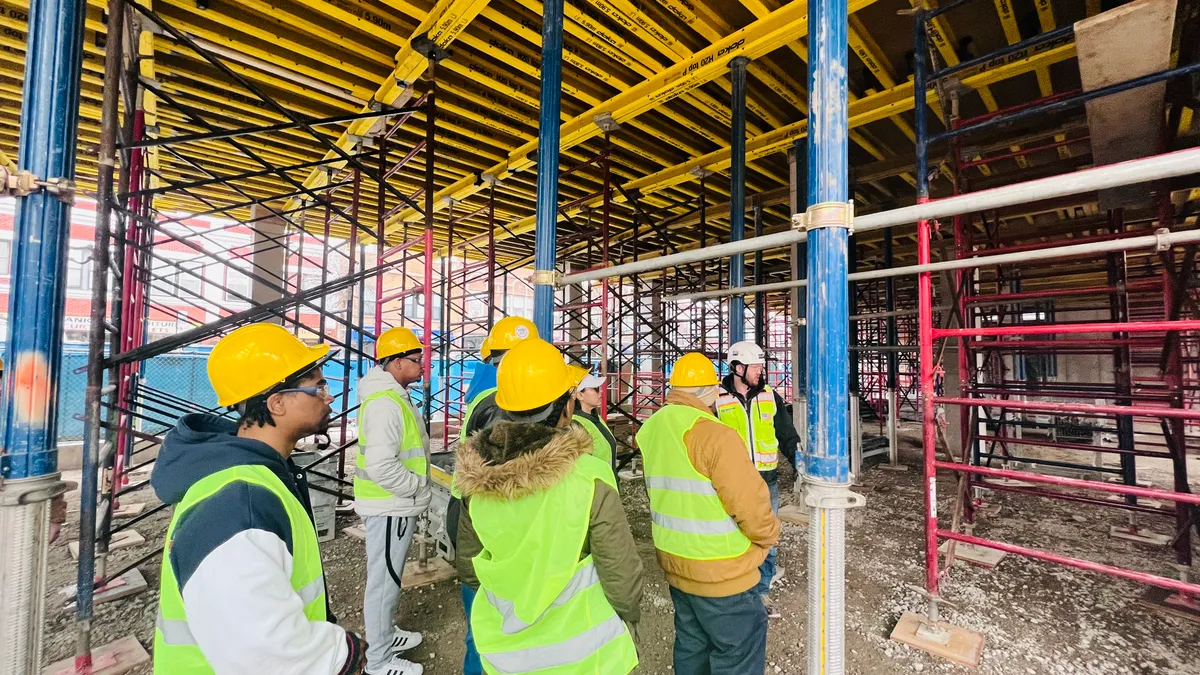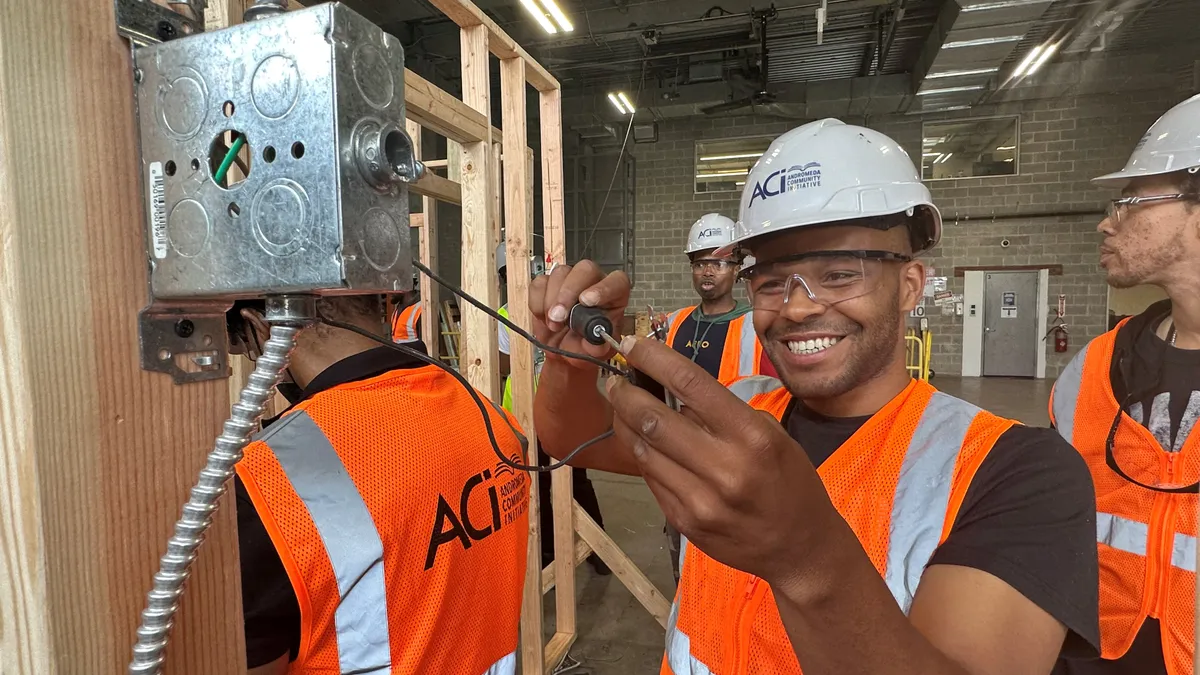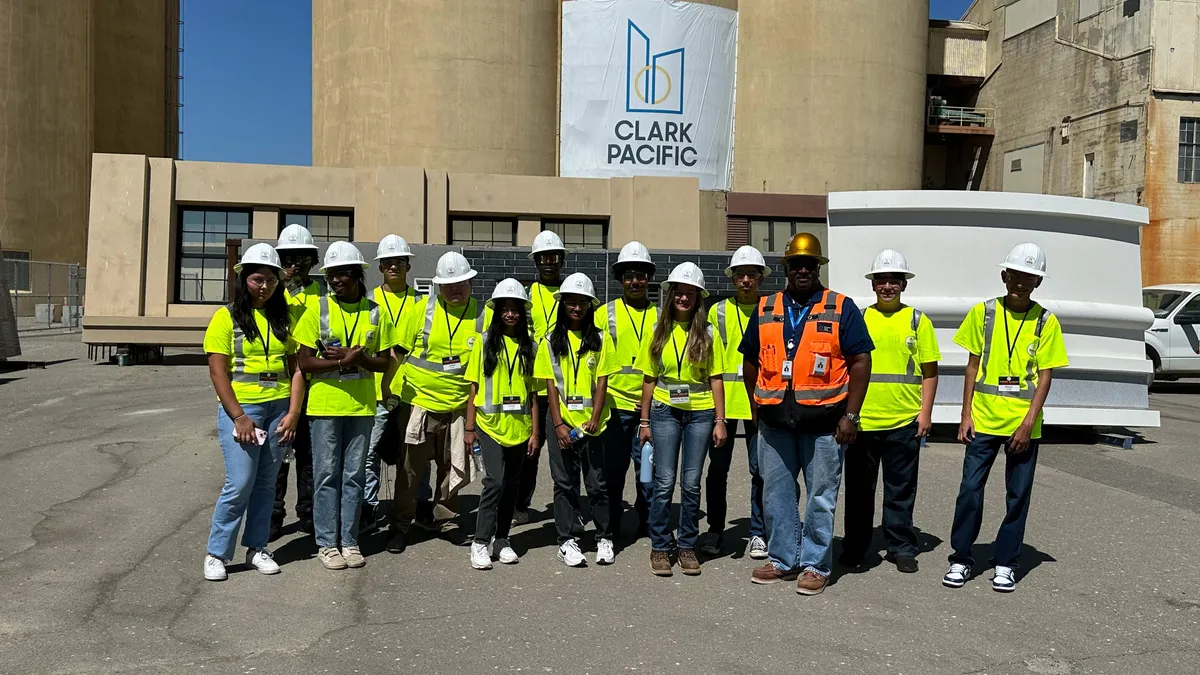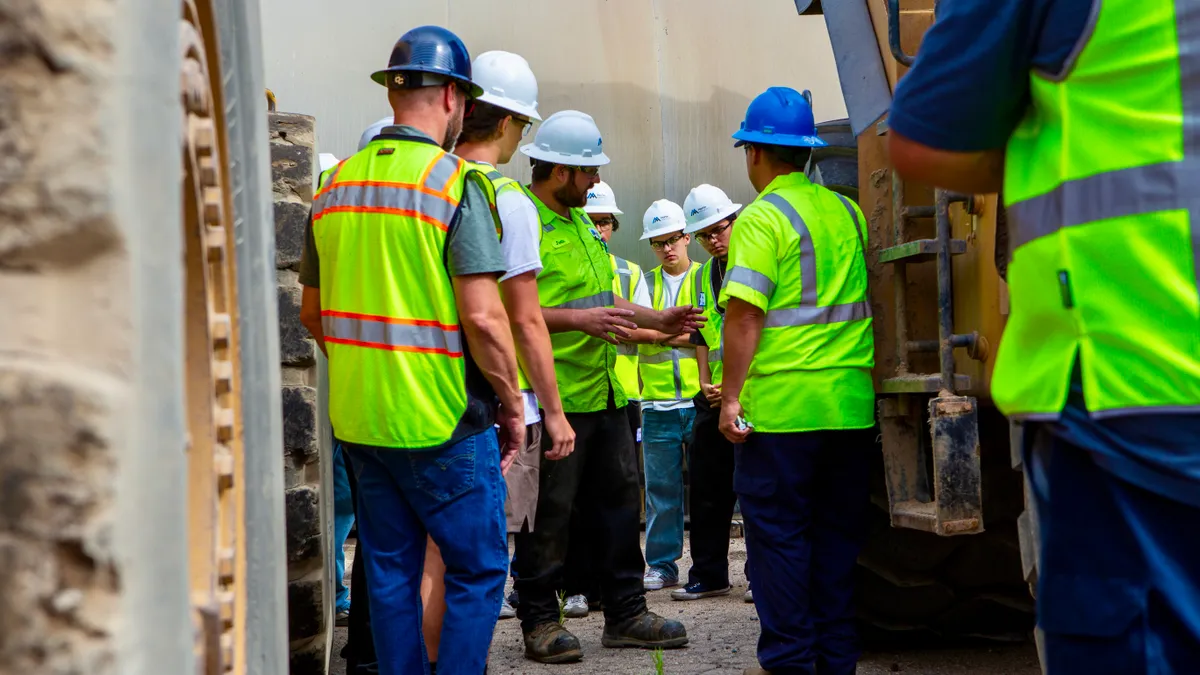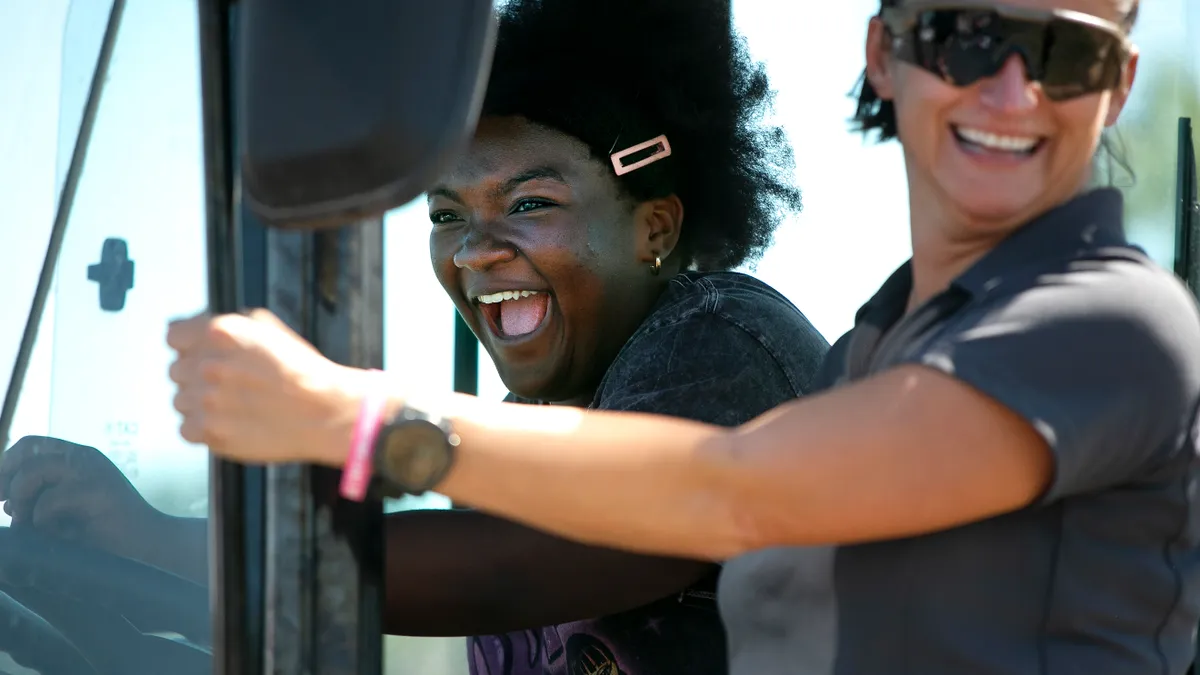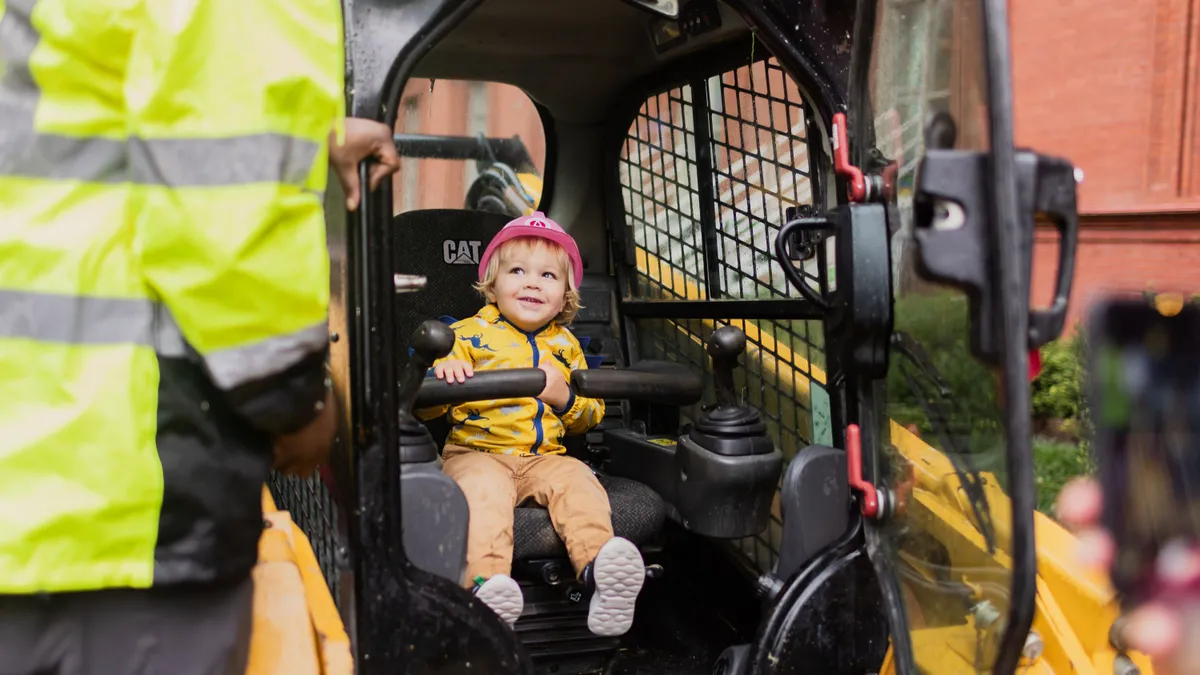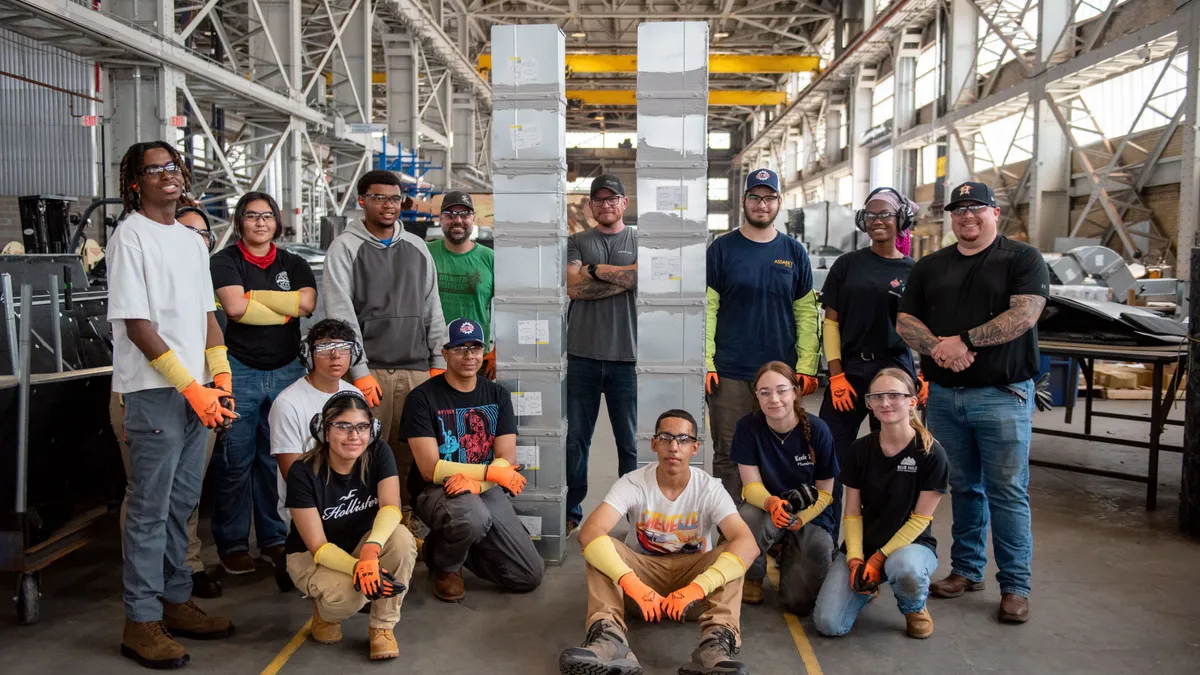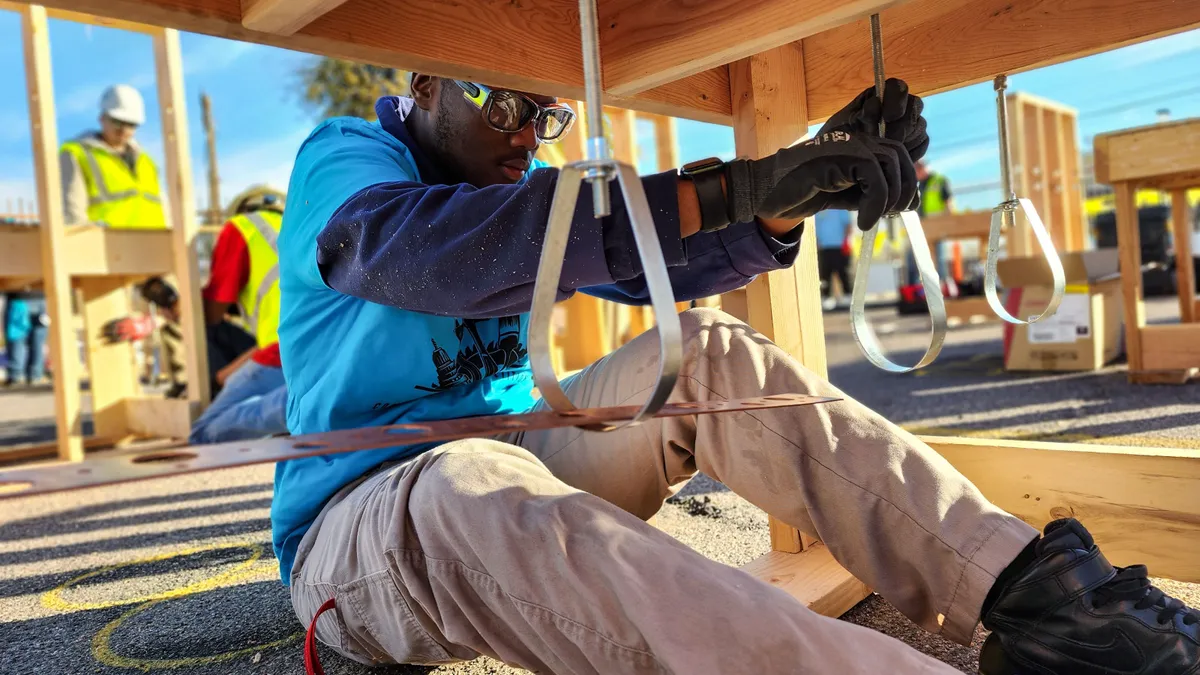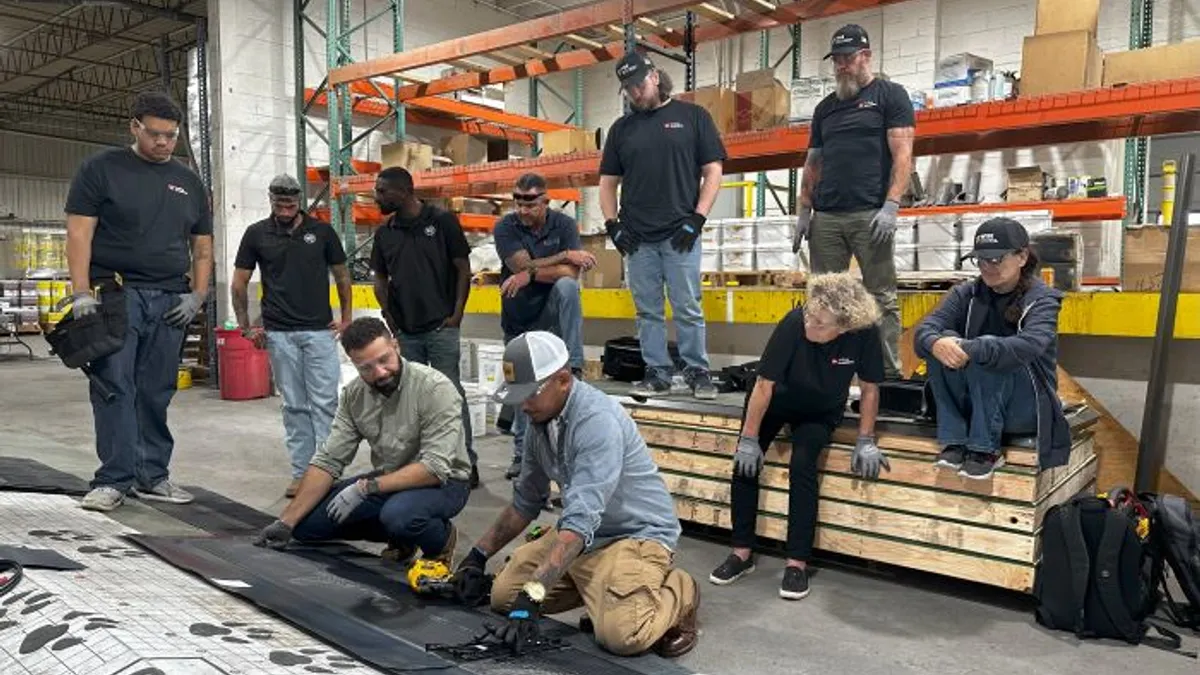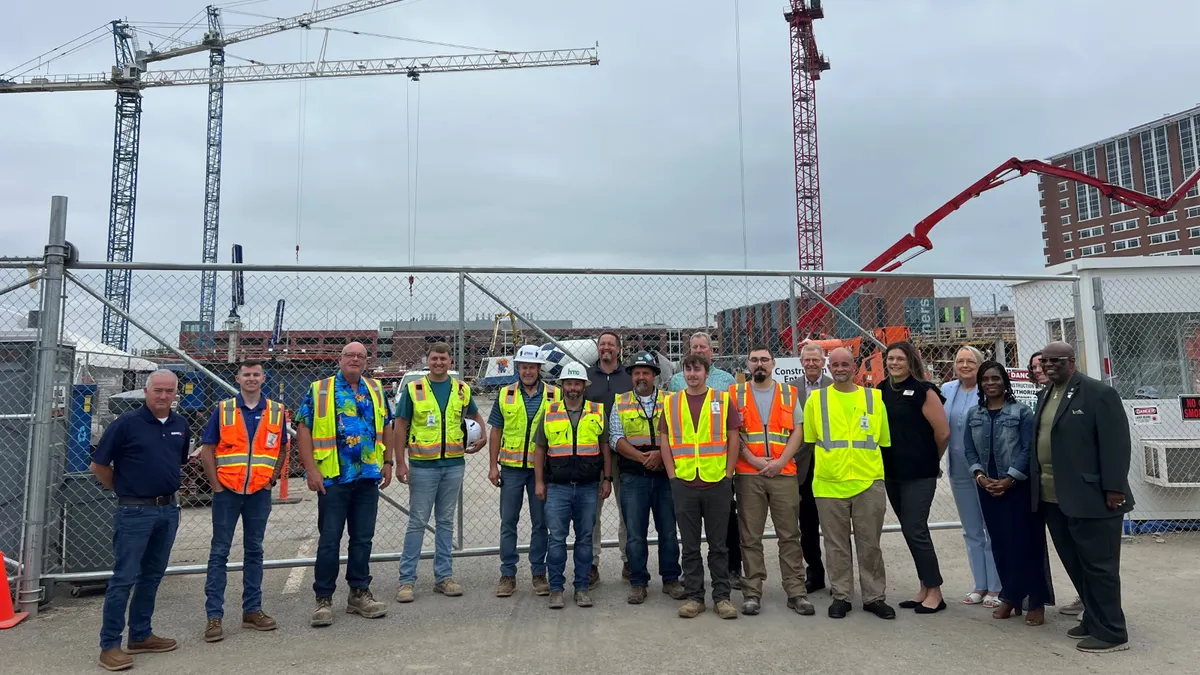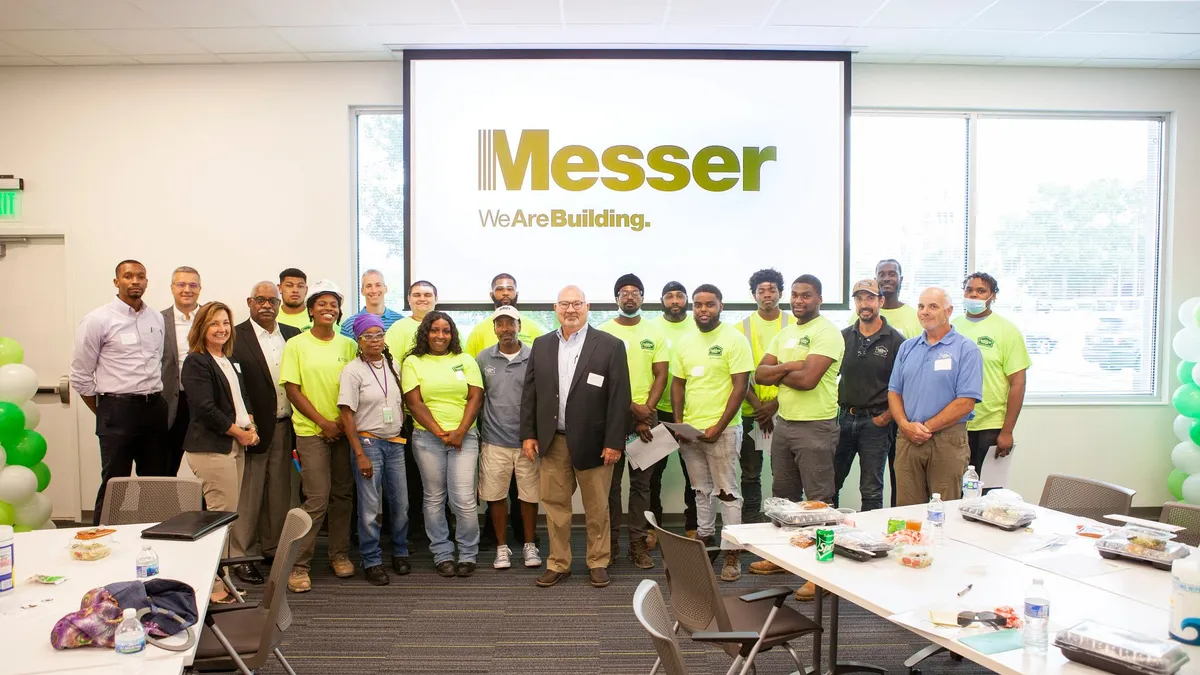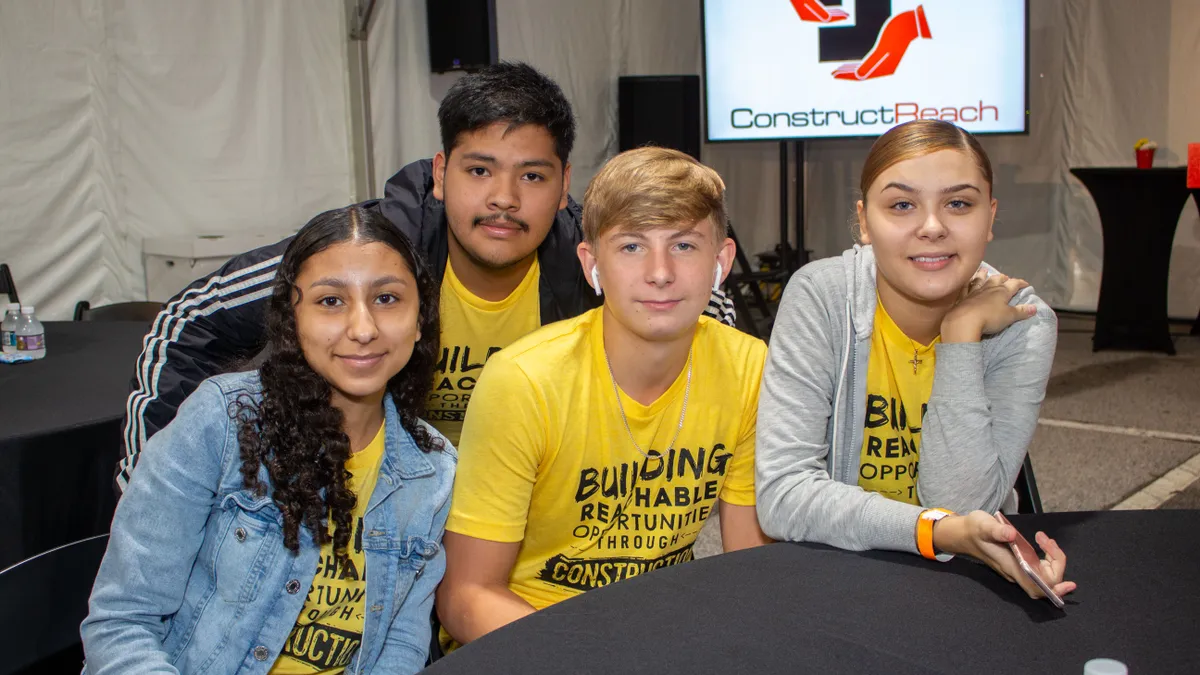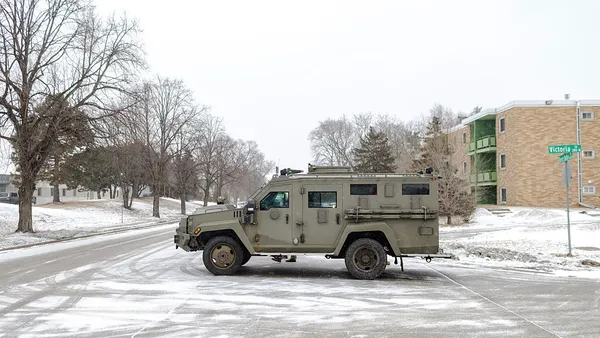The construction industry faces a stark shortage of workers, but programs and people across the country are working at the local level to solve the problem. Help Wanted highlights grassroots efforts to recruit the next generation of construction pros.
Do you know of a group that is helping attract workers to the construction industry? Let us know.
Chelsea Asselmeier is in recovery.
She was introduced to drugs at a young age while growing up in Oregon, got arrested for the first time at 13 and got her first felony at 18.
“I couldn’t stay out of jail to save my life,” Asselmeier told Construction Dive.
At 21, she had a daughter, though she said she still wasn’t ready to grow up even though she was a mother. She fled Oregon, for Texas. Then New Mexico. Then California. She stole cars. She went to prison. After stealing a Uhaul truck, Asselmeier was arrested again and agreed to go into drug treatment, begrudgingly at the time. The state placed her daughter in foster care.
While working in a drug treatment facility as a mentor, she learned about the pre-apprenticeship program Constructing Hope. The Portland, Oregon-based organization recently celebrated its 15th year as a program preparing primarily formerly incarcerated people for apprenticeships in construction.
Asselmeier had always wanted to pursue a career in construction — her father had owned his own construction company.
She applied the day she heard about the program and graduated in the 2021 winter class.
Today, Asselmeier works as a heavy equipment operator making $55 an hour.
She bought a house for herself and her daughter about a month ago.
Journey to Constructing Hope
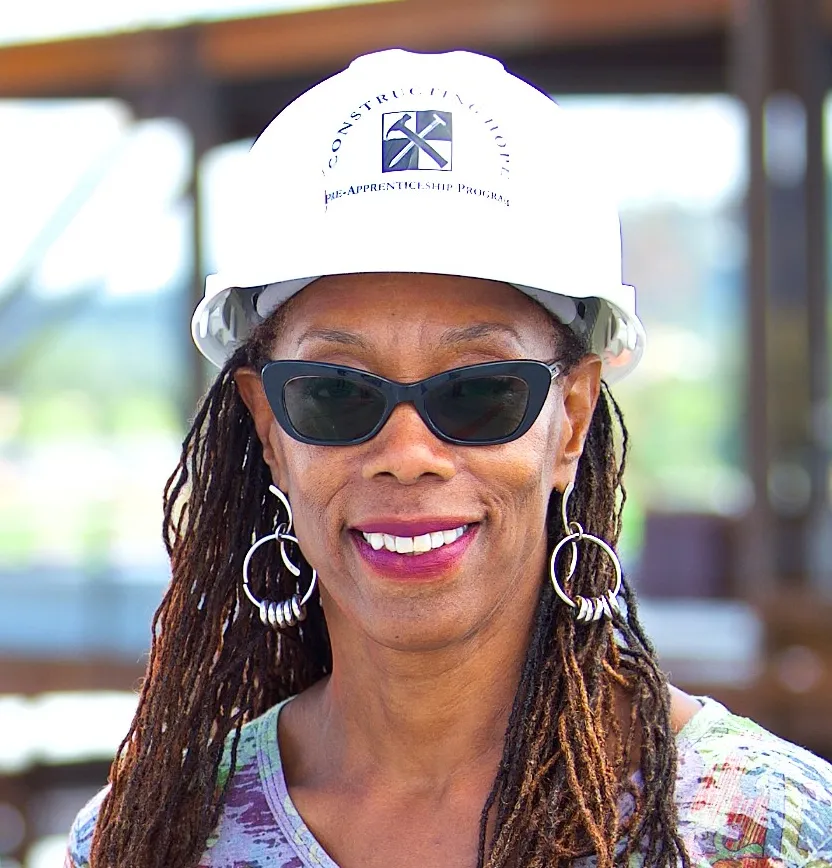
Constructing Hope, a state-certified pre-apprenticeship program, has on average 100 graduates a year and has had more than 1,000 students go through the program, with a history of about 80% placement and retention slightly higher than that, according to executive director Pat Daniels.
Participants receive help for issues that stand in their way of a career, such as finding childcare and getting their driver’s license.
Constructing Hope also works with the city of Portland on expungement programs to help graduates clean their record, then find work on federal construction jobs, which often have stricter requirements surrounding formerly incarcerated people.
Not getting work on those jobs can make it take as much as three times longer to reach journeyman status for formerly incarcerated people, Daniels said.
“When you've done your time, and it's 10 years after the fact, you shouldn't have to still account for that because you paid your debt to society,” Daniels said.
Barriers to entry
Quincy Ashton Baker, an electrician and another winter 2021 graduate, said he would have had no idea how to find a way into the industry had it not been for Constructing Hope.
Daniels said a major barrier to retaining minorities and woman, a larger part of Constructing Hope’s student base, is bullying and hazing. What can start as teasing new faces on the jobsite can evolve into making someone, or a group of people, consistently the butt of the joke.
When that happens, workers will often find the extra stress on top of their normal job not worth the trouble. Daniels said not creating an inviting workplace was the No. 1 issue keeping women and minorities out of the industry. Inviting a more diverse workforce to the jobsite creates a more inclusive environment, as people recognize that others with their same background are welcomed, Daniels said.
Constructing Hope also solves a retention problem many contractors face. Hiring willing employees “off the street” often leads to a short time in the industry, as people realize they’re not interested in construction. When a graduate or member of the pre-apprenticeship program applies for a job, they know what to expect. They’re certified, ready to work hard and they have made the conscious decision to pursue a career in construction, she said.
For instance, during the Constructing Hope program, Baker said he learned the value of showing up on time and putting in a full day’s work.
“It’s going to take hard work and they want you to know that,” Baker said. “You couldn’t miss a day, couldn’t be late for OSHA training. You had to be there. Be present.”
Asked what she wished all contractors knew, Daniels said all people need a second chance.
“If we keep doing the same old thing, we're gonna have the same old answer,” she said. “If you leave anyone out, you're going to be left out because the world is changing. … And when we lift the lowest, everybody rises.”
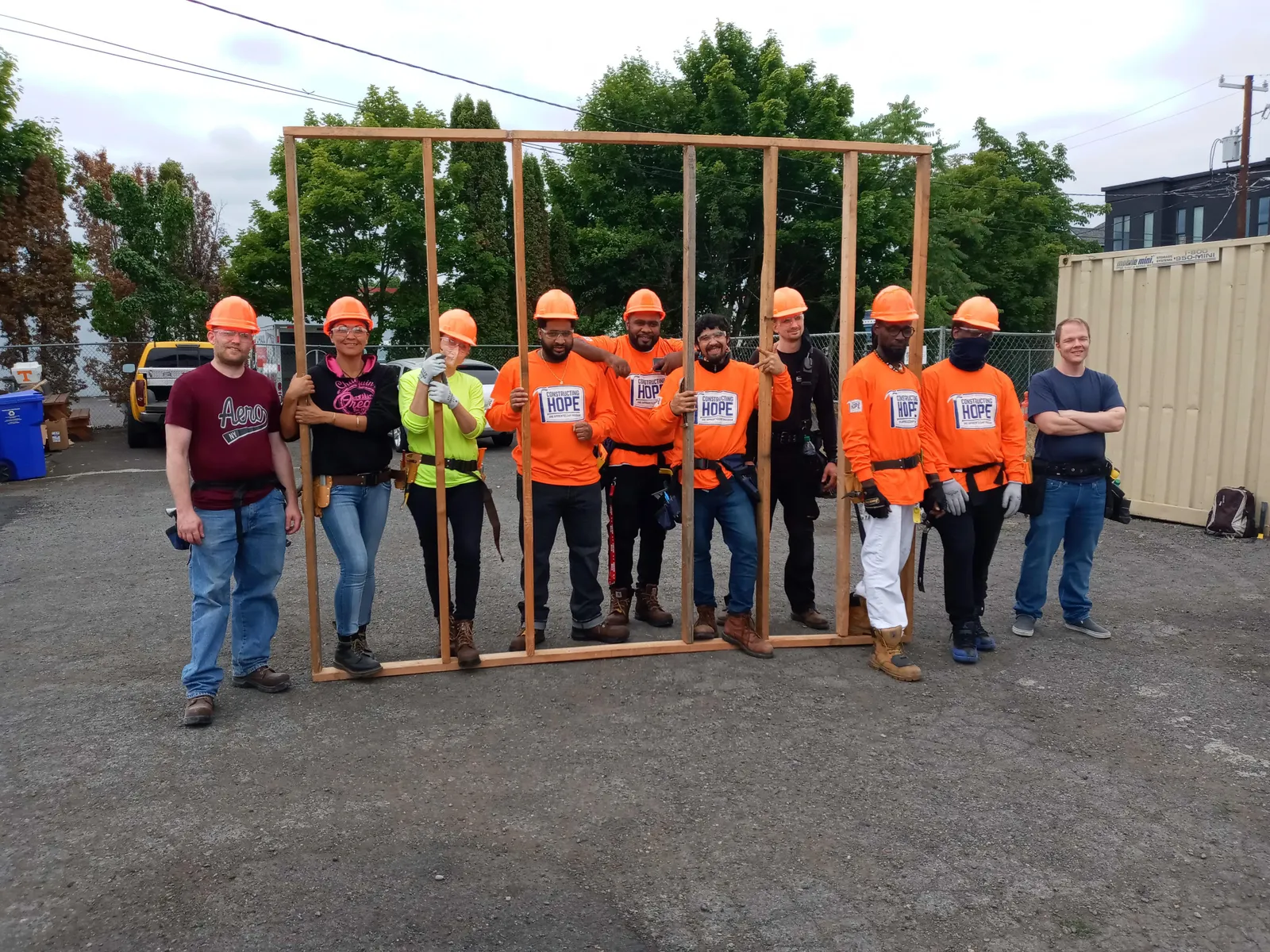
Constructing Hope’s activities keep largely to inside eastern Oregon, but is looking to expand in other ways. Going forward, Daniels said it will seek to create training programs for currently incarcerated people to give them the skills they need to find their footing when released.
It’s been three and a half years since Asselmeier engaged in a thought exercise in a treatment center, turning the negative thought of not wanting to be there into the idea that nothing bad could come of her committing everything to her recovery and to her daughter.
“I’m really grateful that people took a chance on me,” Asselmeier said. “I know so many people that are in similar situations as me that deserve a better life, but don’t really know how to get there.”



